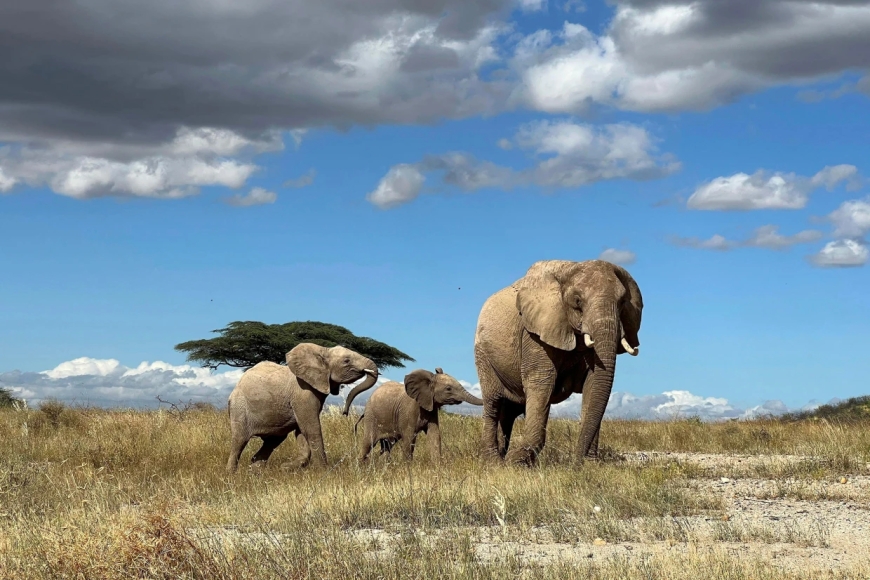New Study Reveals African Elephants Use Unique Names to Communicate
African elephants have been found to call each other by unique names, a phenomenon exceedingly rare among wild animals, according to groundbreaking research published on Monday.


These names are embedded in the low-frequency rumbles elephants use to communicate over vast distances across the savanna. Scientists suggest that such individualized calls may be more common in species with complex social structures and family groups that frequently separate and reunite.
"If you’re managing a large family, you need to be able to say, 'Hey, Virginia, get over here!'" explained Stuart Pimm, a Duke University ecologist who was not involved in the study.
While individual naming is common among humans and domesticated animals like dogs, it is rare in the wild. Baby dolphins create their own signature whistles, and parrots are known to use names as well. Each of these species, including elephants, shares the rare ability to learn and produce unique sounds throughout their lives.
The study, published in Nature Ecology & Evolution, employed machine learning to identify individual names within a library of savanna elephant vocalizations recorded at Kenya's Samburu National Reserve and Amboseli National Park. Biologists followed the elephants in jeeps to observe interactions, noting which elephant called out and which responded — such as a mother calling to her calf or a matriarch summoning a straggler.
The computer model, analyzing the audio data, accurately predicted the addressed elephant 28% of the time, likely due to the inclusion of its name. When provided with meaningless data, the model's accuracy dropped to 8%.
"Like humans, elephants use names, but probably don't use them in the majority of utterances, so we wouldn't expect 100% accuracy," said study author Mickey Pardo, a biologist at Cornell University.
Elephant rumbles often include infrasound, which is below the range of human hearing. Researchers have yet to pinpoint which part of the vocalization constitutes the name.
The findings were further validated by playing recordings to individual elephants. Those hearing their names responded more energetically, with increased ear flapping and trunk movements, while they often ignored calls addressed to others.
"Elephants are incredibly social, always talking and touching each other — this naming likely underpins their ability to communicate with individuals," said co-author George Wittemyer, an ecologist at Colorado State University and scientific adviser for the nonprofit Save the Elephants.
This discovery enhances our understanding of elephant communication and underscores the complexity of their social interactions, highlighting the sophisticated nature of their vocalizations.
May 13, 2025 51
May 12, 2025 324
May 12, 2025 300
May 12, 2025 251
May 12, 2025 273
Apr 15, 2023 27k
Feb 15, 2023 26.6k
Apr 15, 2023 24.9k
Mar 31, 2025 4.5k
Mar 11, 2025 3.2k
This site uses cookies. By continuing to browse the site you are agreeing to our use of cookies.


